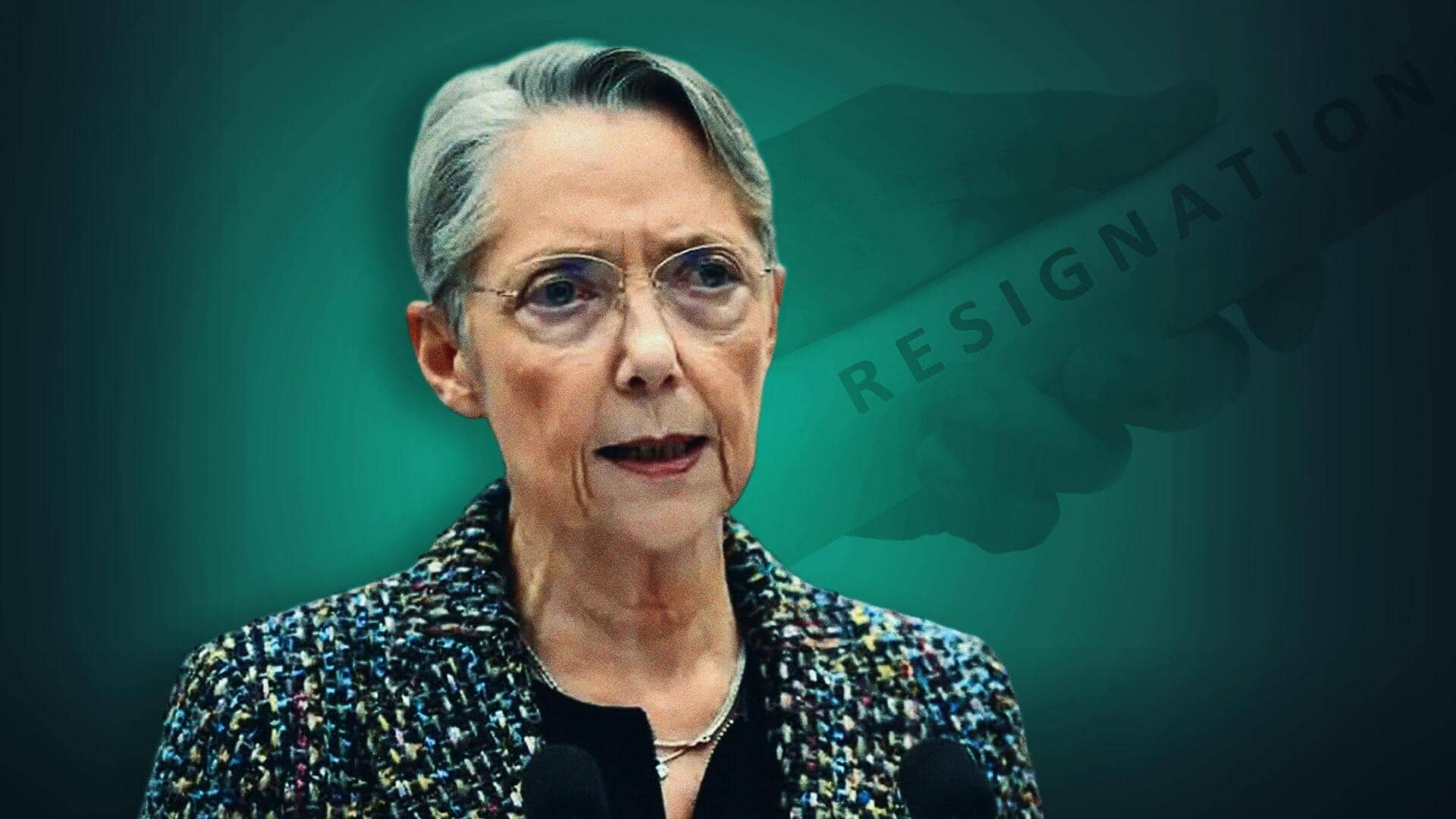
French PM Elisabeth Borne resigns amid political tensions over immigration
What's the story
French Prime Minister Elisabeth Borne has stepped down following recent political tensions over contentious reforms in immigration laws and the pension system, reports said. President Emmanuel Macron accepted her resignation on Monday (local time). Borne was appointed to the top post in May 2022 after Macron was reelected for a second presidential term, becoming France's second female prime minister.
Context
Why does this story matter?
France's parliament recently passed a controversial immigration law, but Macron's own party didn't support it. This exposed a deep rift in his majority government, which possibly prompted him to consider a political reset. Moreover, recent opinion polls in France have shown Macron's party was behind its opposition leader, Marine Le Pen, by eight to ten points. This reportedly triggered speculation of a possible reshuffle.
Resignation
What Borne said in her resignation letter
Borne's resignation letter said she and Macron agreed during their last meeting that "it was more necessary than ever to push on with reforms," per Reuters. Accepting her resignation, Macron complimented her for demonstrating "courage, commitment, and determination" throughout her tenure. Borne will likely continue in office until her replacement is nominated or a new prime minister takes over following June's European Parliament election.
Immigration law
Macron to face tough June election
In December, Macron's centrist majority suffered a setback when his party didn't support a vital immigration bill that toughened rules for foreigners. Thought the law was eventually passed with right-wing opposition groups' backing, Macron's Rennaissance Party might still face stiff competition in the June election. Moreover, Borne's resignation is a major revamp, with many key leaders now being considered to succeed her, per BBC.
Pension system
France witnessed violent protests over increase in pension age
Last year, France also witnessed violent protests after Macron used executive powers to increase the pension age to 64 years. Borne also faced criticism after the contentious move. She was called "Madame 49.3" for invoking the French constitution's Article 49.3 several times to force law passages. Meanwhile, the reshuffle is also likely to intensify the race for Macron's successor in the 2027 presidential election.
Emmanuel Macron
Uphill task for Macron, new PM
Amid the crisis, Borne will run the government's daily affairs and lead the Council of Ministers until her replacement is appointed. To recall, Macron's party lost its parliamentary majority in 2022, making the incoming prime minister's task of enacting the president's policies difficult. When nominated, the new prime minister would become the fourth to occupy office since Macron was elected the president in 2017.